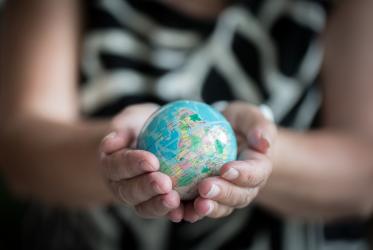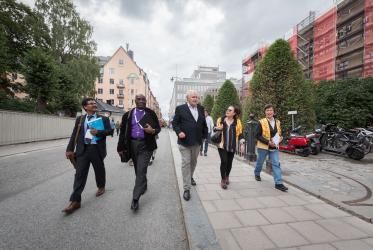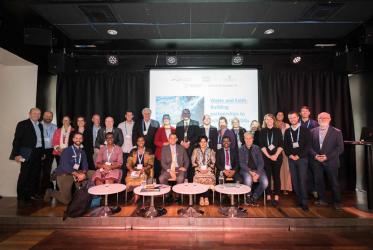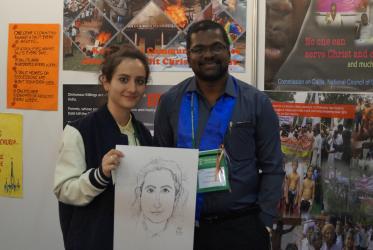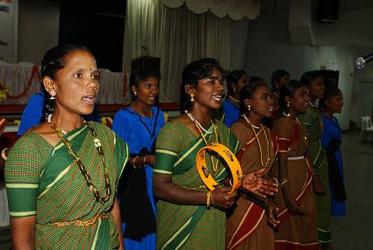Displaying 1 - 20 of 20
17 February 2020
WCC President Wejryd: ‘Water, in many ways, represents God’
27 September 2019
WCC pays tribute to ecumenist pioneer
08 May 2019
Faith and Water: Translating words into action
30 August 2018
#WCC70: Nathan Söderblom, ecumenical pioneer
29 August 2018
Broken glass of hope grown out of rubble
16 July 2018
Trying to do good for the world
18 December 2017
Winners of WCC photo contest announced
09 May 2016
Walking to Emmaus in the Holy Land, and Sweden
12 May 2015
“No one can serve Christ and caste!”
07 November 2013
Churches celebrate Week of Prayer for Christian Unity
23 January 2013




